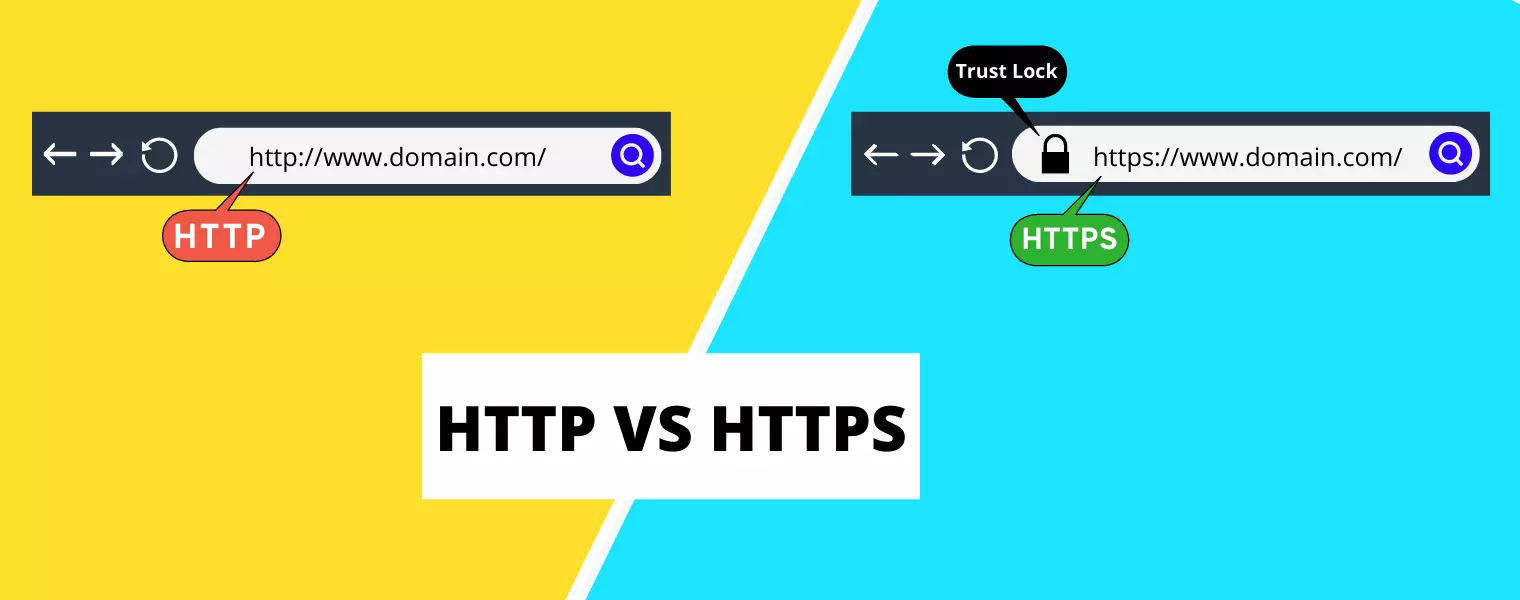
Having a safe website has several SEO advantages. The following are the main reasons to move from HTTP to HTTPS.
Google warned webmasters in 2018 that if they run a non-HTTPS website, they risk losing traffic and that this dreadful pop-up message would appear before Chrome visitors reach to your site.
In May 2010, Google began encouraging websites to switch to HTTPS.
Then, on August 6, 2014, Google stated that HTTPS sites will be prioritised in search results.
Improved Search Rankings
Better User Experience
Protect Your Users’ Information
Get the Secure Lock Icon
More Effective PPC Campaigns
HTTPS is not a ranking factor according to Google. O n the other hand, Google has confessed to favouring HTTPS-enabled sites. According to the study, HTTPs has a beneficial influence on visibility in the SERPs. After moving from HTTP to HTTPS, it fasten the rankings.
Indicators are used by browsers such as Firefox and Chrome to display whether or not a website is safe. Users are taking notice.
So much so that 84 percent of users would prefer cancel a transaction than complete it if they thought the site was not secure.
You will enhance retention if you provide a safe and secure browsing experience.
You can safeguard your users' data by using HTTPS. You don't want a data leak like the ones at Marriott or Facebook. Marriott's problem may have been prevented if the company had kept its HTTPS status with the SSL/TLS certificate.
77% of website visitors are concerned about their data being captured or exploited online. You'll want to begin establishing trust and credibility with them. This secure lock symbol will take care of it for you.
Majority of Google's revenue come from Ad sales account. Advertisers will stop paying for Google Ads if people visit your site but do not convert. As a result, adopting HTTPS aids in the reduction of deceptive advertising and the rise of conversions.
In addition, Google Advertising began automatically switching HTTP search ads to HTTPS in 2018. They've also begun to caution marketers about the dangers of utilising HTTP addresses for landing pages.
Switching from HTTP to HTTPS can be challenging for non-techies since there are a few complications that might arise.
Here's a brief rundown of everything you'll need to do to switch your site from HTTP to HTTPS:
Look for an SSL certificate.
Set up your SSL certificate.
Change the domain's protocol to HTTPS.
All HTTP pages should be redirected to HTTPS.
Verify ownership in the Google Search Console once again.
Refresh the sitemap
Update your robots.txt file.
Update your settings in Google Analytics
Test
If all your sites aren’t already running on HTTPS – I’m sure you now know what to do next. In addition to all of the SEO benefits that we’ve discussed in this article, and considering the complexity of making the switch in this day and age, I recommend switching over to HTTPS as soon as possible to not only keep up with Google but also keep up with your competition. if you have any questions contact us info@doforttech.com.
Welcome to DoFort !